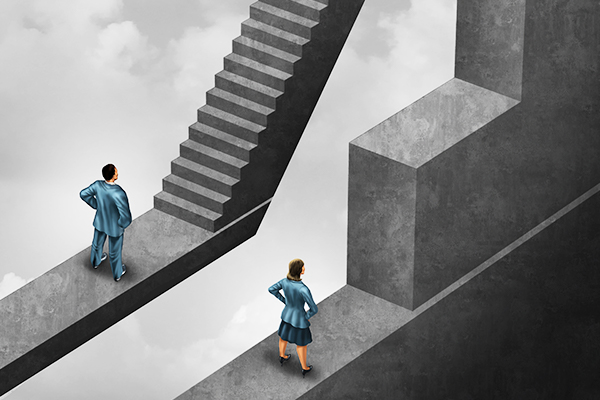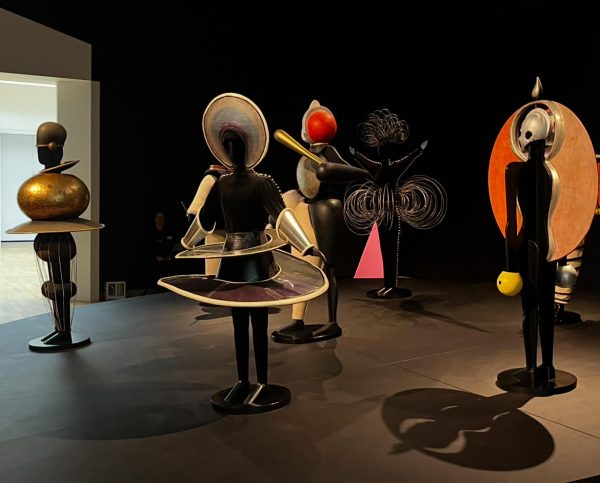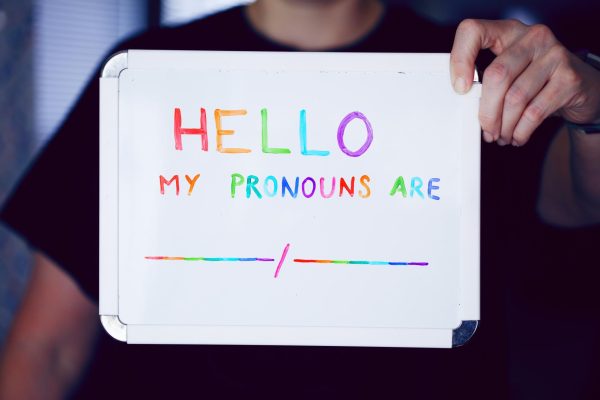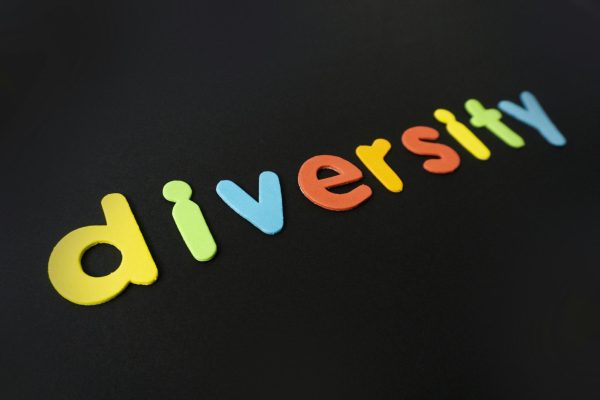Systemic Sexism Still Plagues America

Photo courtesy of the Northwestern University School of Education and Social Policy
Modern feminism has become one of the most misunderstood discussion topics in modern politics. When you walk up to a conservative and ask them their opinion on feminism, they will often cite the cringiest and most hyperbolic few that have come to represent modern feminism, at least on the right.
These cherry-picked examples do not invalidate the entire movement, however, and their defaulting to those common scapegoats just shows their lack of understanding of the movement. When you actually try to have a discussion with these people, they will often say something along the lines of “women already have equal rights, so what is the issue?” That is the issue right there; they don’t understand the purpose of modern feminism.
At least in America, women do indeed have equal, constitutionally protected rights, but these issues go way deeper than a thin sheet of paper saying they are equal. While it’s easy and nice to think women are equal to men in America, that is simply not the case because there is more to feminism (or any social movement) than just legal doctrine. Yes, on paper, women have equal rights, but there are still systemic, often hidden, barriers that keep women from truly being equal.
Modern feminism does not exactly seek equal rights in terms of constitutional privileges but more eliminating the social barriers and biases that have socially, economically and politically held women back. Now you might be saying, “There is no bias,” but that is simply not true. For example, a 1991 study found that teachers pick on boys more than they do girls. Female political candidates are judged more on appearances and family responsibilities rather than policy positions or track records.
This was shown on full display in the 2008 presidential election when John McCain announced that Sarah Palin would be his running mate. Now say what you will about Palin, but instead of focusing on her policy, the media latched on to aspects such as her looks and her intelligence when no other candidate got the same amount of scrutiny. This disparity became so comically huge with public audiences that people legitimately did not know Tina Fey’s impersonation of her on Saturday Night Live was fake. There is even a term for this in political science called “The Tina Fey Effect.”
During the 2016 election cycle, Donald Trump said stuff like “Does she look presidential, fellas? Give me a break,” “If she were a man, I don’t think she’d get five percent of the vote,” and “If Hillary Clinton can’t satisfy her husband, what makes her think she can satisfy America?” Let’s not forget about the “grab her by the *****” incident. You could say, “well, that’s just one guy,” but that man still had the support and votes of 62 million people in 2016 and another 8 million in 2020.
Even at the level of the Supreme Court, Women aren’t treated equally. A 2017 study found that female lawyers are interrupted more, given less time to speak between interruptions, and are subjected to more and longer speeches by judges. The only exceptions to this were in cases related to gendered issues like reproductive rights or gender discrimination. So if even the highest court in the country, which is supposed to be devoid of bias, has problems with a sexist bias, how can we expect that there just isn’t bias in the rest of society?
Regardless of your beliefs, implicit biases are ingrained into us from a young age, both from lived experiences and also socially constructed gender roles and norms. Those biases then later come to affect subconscious decision making, such as the previously mentioned Supreme Court study. This isn’t just about men having sexist biases either because both men and women have them.
Women are better represented in many positions of power, but as shown with the conduct of the Supreme Court or media coverage of female candidates, those biases still exist and remain issues regardless. That is what modern feminism is fighting against. It’s not chasing after some already obtained treasure; it’s about educating people to understand that more goes into systemic sexism than just what is written on a legal document.
Think about it, how many times have you heard the phrases “be a man!” or “only real men [insert obligatory thing here]”? Those phrases almost always make no sense and just further play into existing negative stereotypes. Those perceptions, biases, and stereotypes play into how we are raised and socialized and a lot of people do not understand that they exist, so part of the goal of modern feminism is putting those biases in the limelight so that we can work towards eliminating them.
Even beyond all of the social issues though, there are very tangible sexist policies being paraded across the country. Most notable are all the dozens of anti-abortion laws popping up across the country like acne pimples. I’ve said it before and I’ll say it again, abortion is not an issue about privacy or anything else. It’s an issue about equal and fair access to medical services. Some of these cases have gone so extreme that state governments are even prosecuting women for having miscarriages claiming that they were abortions. To say the least, this is just horrifying and just plain evil.
We are now experiencing a historic rollback of women’s rights and liberties, so how anyone can say women are equal to men even on a legal basis is beyond me. This is why it is crucial to fight against bias against women, both implicit and explicit, because making people aware of that bias will help them to mitigate it, but a large part of the battle is just spreading awareness. Those preconceived biases are why we are in the situation we are in now, where women’s rights are not only stagnating but are regressing in the US.









